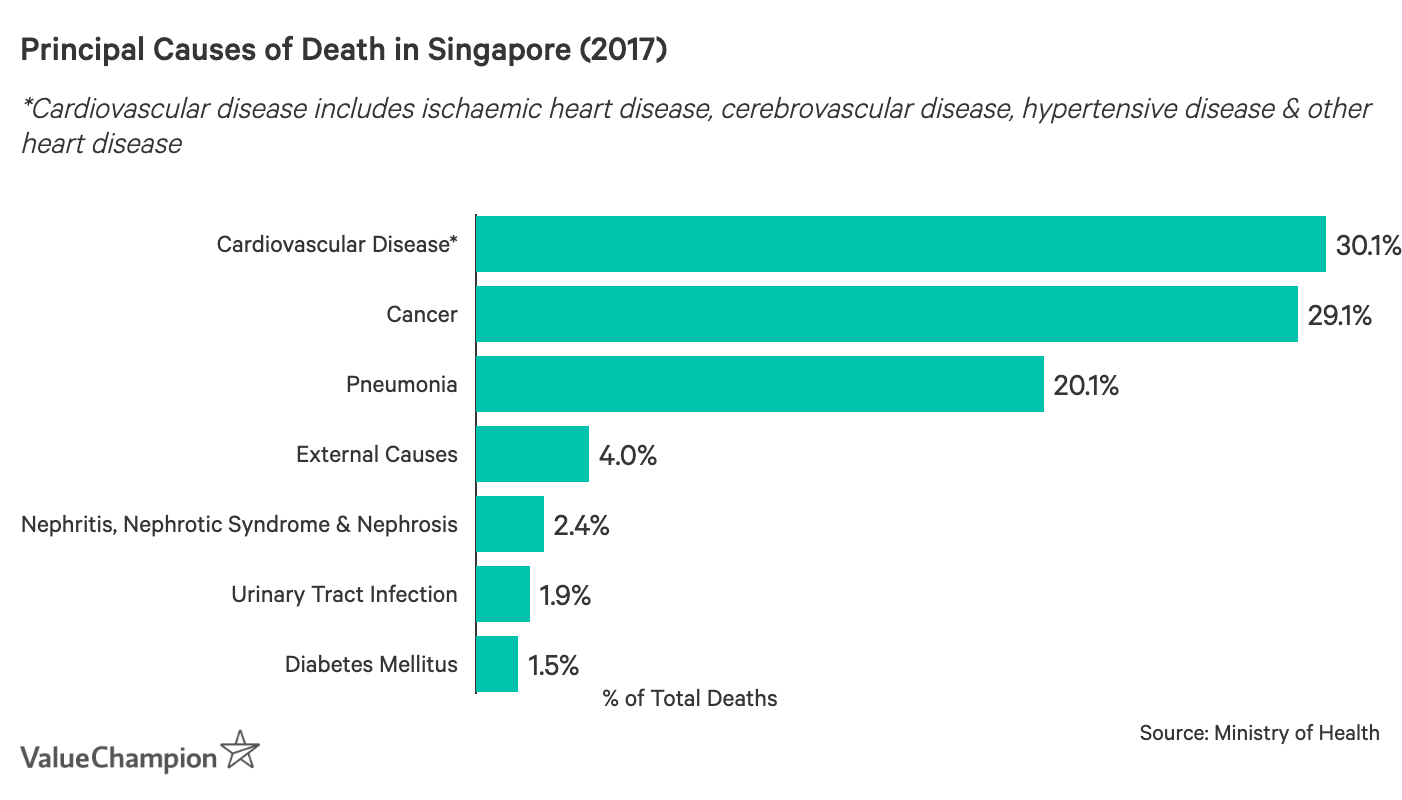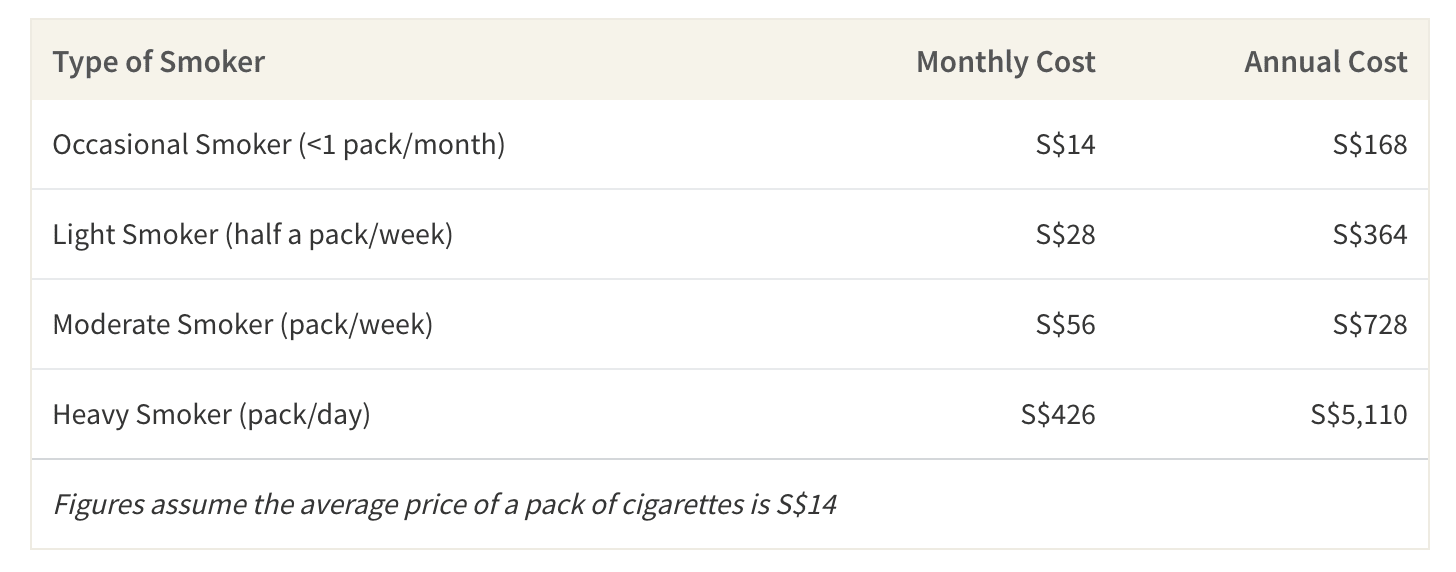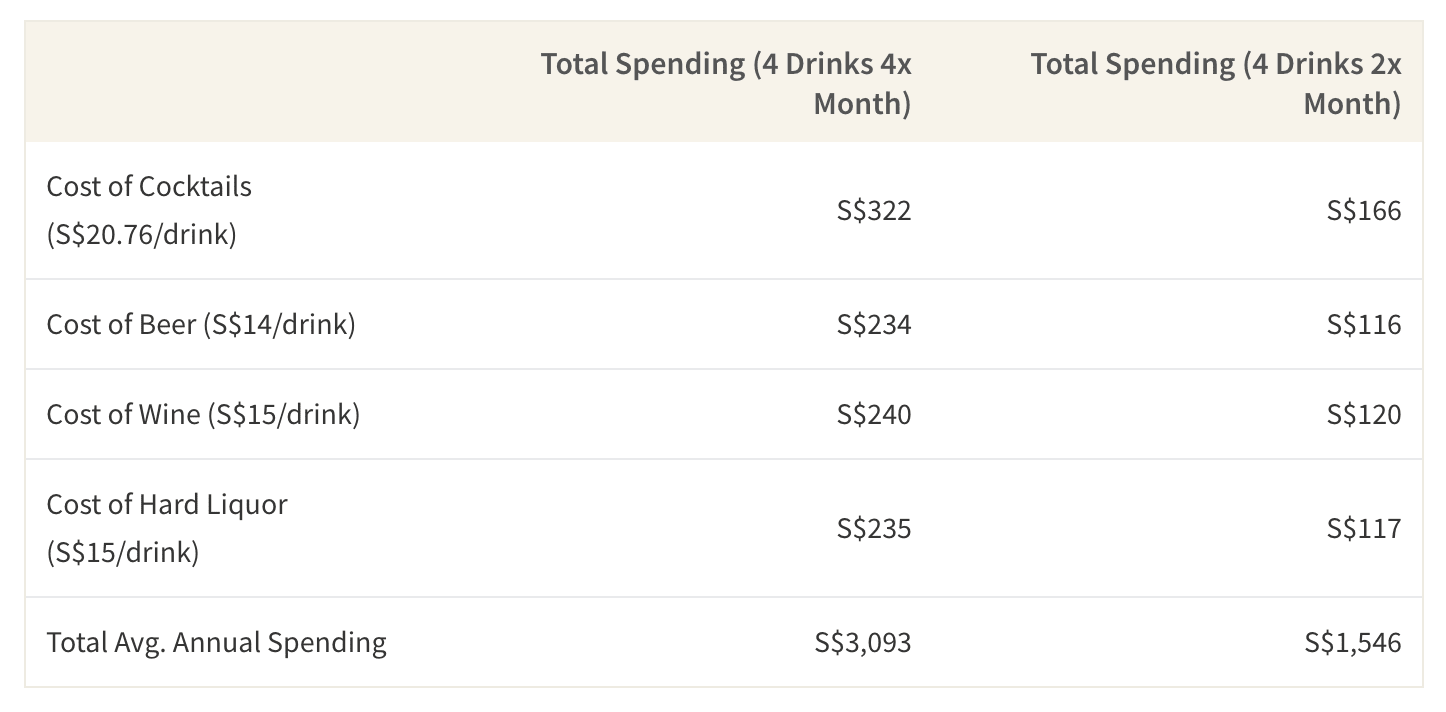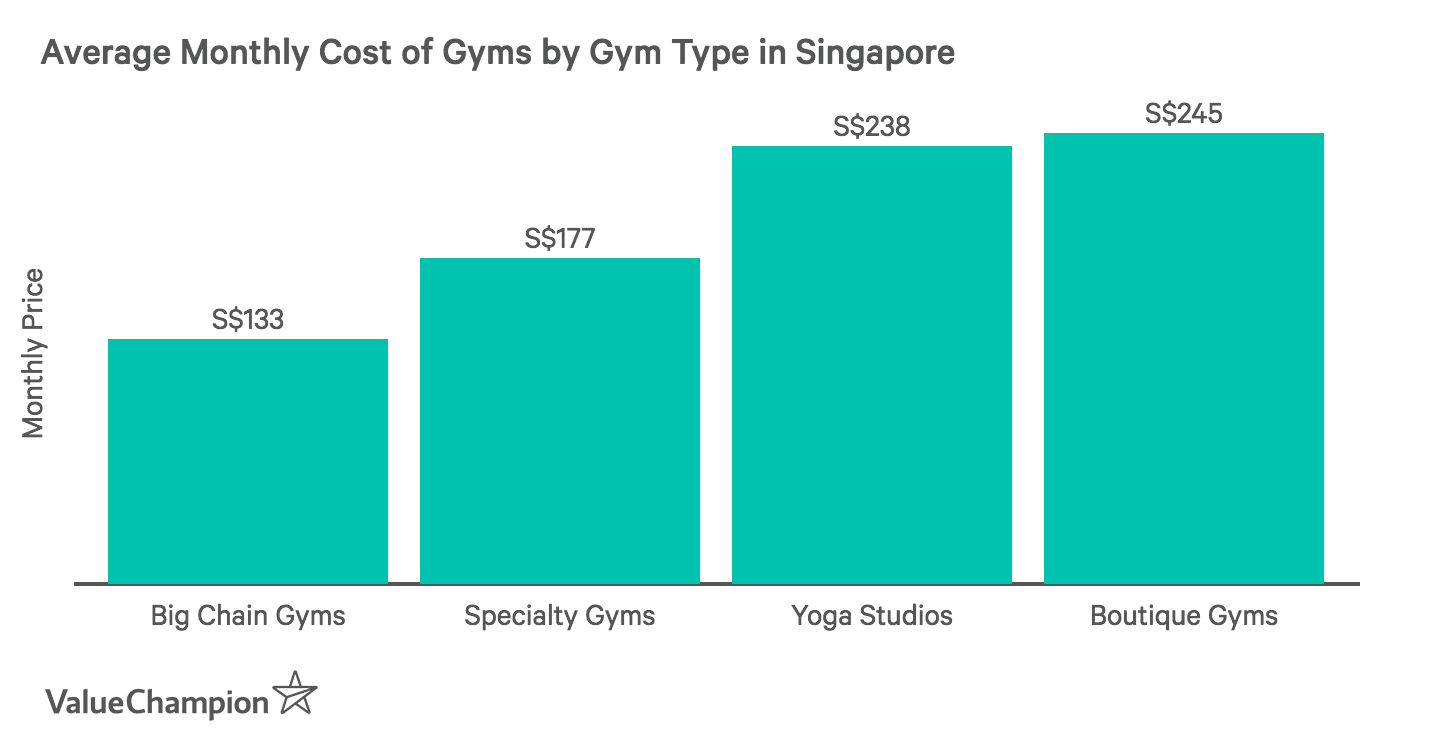5 Affordable Ways to Reduce Your Risk of Cardiovascular Disease
Cardiovascular disease (CVD) is one of the most common maladies affecting Singaporeans. It's also one of the most deadly, with a third of all deaths being attributed to conditions falling under the category of CVD. However, with the exception of rare genetic conditions, CVD is generally preventable. For instance, even simple lifestyle changes like being more active and eating more vegetables are great ways to reduce your risk of getting cardiovascular disease. Below, we discuss the five best ways to reduce your CVD risk, why they work and any financial benefits that may be associated with them.

What Are the Risk Factors for Cardiovascular Disease?
There are many factors that can lead to an increased risk of getting cardiovascular disease, some more preventable than others. Your age, gender, ethnicity and genetics are four indicators that cannot be altered, but impact your risk of heart disease. For instance, the risk of getting heart disease will increase as you get older. Also, while men initially have a greater risk of developing heart disease than women, the risk becomes more or less equal once women go through menopause. Individuals also have a higher risk of developing CVD if someone in their immediate family has a history of premature heart disease. Last, ethnicity may play a role in heart disease risk as well. For instance, studies have found that in Singapore, Indians and Malays have higher incidence rates of heart disease compared to those of Chinese residents.
So, what do you do if you are born with an increased risk of CVD? Your best option is to tackle risk factors that are within your control. This includes quitting smoking, drinking less alcohol, staying at a healthy weight, exercising and following a heart healthy diet. It may seem overwhelming to do all at once, but even picking a couple of lifestyle habits to improve on can help you start reducing your risk of CVD.
Quit Smoking
It is no secret that smoking leads to a myriad of serious health issues. Smoking damages heart vessels, causes an increased heart rate and reduces the amount of oxygen in the blood. Smoking also damages the lining of your arteries which can lead to a buildup of plaque, increasing the risk of angina, heart attack and stroke. Furthermore, the benefits of quitting smoking appear quite quickly. After a year of not smoking, one's risk of CVD decreases by 50%.
Cost of Smoking in Singapore

Unfortunately, even when smokers are well-educated about the risks associated with smoking, many still find it difficult to quit due to tobacco's addictive properties. However, there are a number of programmes and methods to help smokers kick their habit. If your addiction is fairly mild, you can consider cutting down the amount of cigarettes you smoke per day until you completely stop. Alternatively, you can try to quit cold turkey, although you should note that this method has a low success rate and many people start and quit multiple times before they are successful. Those with a stronger nicotine addiction may benefit from smoking cessation programmes like I Quit. Beyond reducing the risk of several deadly diseases, quitting smoking also has significant financial benefits. For instance, a social smoker who smokes a S$14 pack per week can save S$728 per year. A heavy smoker can save even more—S$5,110 per year.
Reduce Your Alcohol Consumption
You may have heard that drinking a glass of wine a day may be good for your health, and in a way, this isn't completely untrue. For a while, a few studies indicated that a small intake of alcohol may increase HDL cholesterol (good cholesterol), which is necessary for good heart health. However, those studies that showed a positive correlation between heart health and low alcohol consumption may have overlooked outside influencing factors. For instance, while people who drink red wine in moderation showed a lower incidence of heart disease, it may not have been due solely to the wine. Rather, those individuals may be wealthier and have access to healthier food, better education and better healthcare. Furthermore, a recently released study by The Lancet showed that there isn't any amount of alcohol that is beneficial for your heart.
Estimated Annual Savings By Reducing Bar Outings By 50%

Furthermore, excessive drinking is even worse, as it can lead to stroke a myriad of heart-related conditions including stroke, cardiomyopathy, cardiac arrhythmia and sudden cardiac death. If you do have to drink, then you should stick within the recommended limits. According to the Health Promotion Board, this means men should drink no more than 20 grams of alcohol per day and women should drink no more than 10 grams. If you have heart failure or heart rhythm abnormalities, then you shouldn't drink alcohol at all. Lastly, cutting down on your alcohol has financial benefits as well. Cutting down the amount of time you go out by half can save you over S$1,500 per year.
Switch to a Heart-Healthy Diet
A clean and healthy diet does more than just help you shed some excess kilos. A heart-healthy diet can help reduce the risk of getting heart disease by lowering your cholesterol, keeping you at a healthy weight and providing your body with the nutrients it needs to run effectively. One recommended diet is called the DASH (Dietary Approaches to Stop Hypertension) diet, where you focus on eating vegetables, fruit, whole grains and healthy protein like fish while reducing unhealthy fats, sodium and sugar. There is a good amount of evidence suggesting that increasing your intake of leafy greens and cruciferous vegetables like lettuce, spinach, cabbage and bok choy can reduce your risk of cardiovascular mortality.
You don't even have to splurge on fresh produce to reap the benefits of a vegetable-laden diet. Studies have shown that canned and frozen produce is just as healthy for you as fresh produce—just make sure your canned goods contain low sodium levels.
Manage Your Stress Level
In today's hectic world, stress is virtually unavoidable, despite an increased awareness of how it wreaks havoc on the mind and body. Its link to heart disease is especially troubling. While researchers previously believed that heart attacks occur solely through internal events (when a blocked artery ruptures and blocks blood flow through a coronary artery), recent studies indicate that stress and anger levels may play a role as well. This is because stress can lead to surges in your heart rate and blood pressure, leading to plaque instability. It's not just heart attacks that can occur from stress either. Over the long term, individuals suffering from chronic work-related stress were shown to have an excess CVD risk of 10%-40% compared to people who didn't suffer from work stress.
Thus, it can be very beneficial for your heart to find ways to de-stress during the day if you find yourself chronically stressed at work. The good news is that most stress reduction methods are free. For instance, you can track the source of your stress by writing down the things throughout the day that stress you out. Then, you can see whether you can implement changes in your workplace to alleviate some of these stressors. If necessary, you can talk to your supervisor, manager or workplace counsellor. You should also take time to relax throughout the day, even if just for a few minutes. This includes taking breaks, going out for a walk or simply doing some breathing exercises. After-work stress reduction methods include exercising, meditation and spending quality time with family and friends.
Find Time to Exercise
Exercise is a great way to combat a combination of risk factors. Not only does staying active help heart health, but it also aids in keeping your weight down and reducing stress. In fact, regular exercise can help lead to a 20-50% reduced risk of a variety of chronic conditions, including coronary artery disease, diabetes, stroke and high blood pressure. To combat the negative effects of a sedentary lifestyle, the World Health Organisation (WHO) recommends at least 150 minutes of moderate-intensity physical activity or 75 minutes of intense exercise per week for adults (aged 18-65). This works out to as little as 15-30 minutes per day for 5 days out of the week.

If you are worried about a busy work schedule that leaves virtually no free time to go to the gym, it will help you to know that normal lifestyle movements count towards this goal. For instance, house chores, walking and taking the stairs all count towards your 150 minute exercise goal. This means you don't even have to spend hundreds per year on a gym to stay active. Simply parking farther away from your job, getting off the bus or MRT one stop early to walk more to work or taking the stairs instead of the elevator can help you achieve your weekly goal. Over the weekend, you can make an effort to go on longer walks, and maybe have your family join as a way to kickstart healthy habits in your kids. However, if you do like the idea of a gym but are worried that you can't afford the monthly payments, then you can consider looking into big chain gyms. They cost 45% less per month than boutique gyms but will provide all the equipment or classes you need to keep yourself active.
How to Keep Treatment Affordable
Whether you have a high risk of developing CVD or you are already suffering from the condition, there are ways to make the cost more manageable. First, individuals who are at a heightened risk of getting CVD should consider getting a good health insurance policy that will be able to cover costly hospital bills. For instance, Great Eastern's GREAT SupremeHealth plans are some of the most competitively priced Integrated Shield Plans, but they offer the highest annual limits on the market of up to S$1.5 million. Those who want even further protection can even consider a critical illness insurance policy. This type of policy provides a lump sum of cash in the event you suffer from a critical illness, including a heart attack or stroke. Both types of policies should be purchased before you are diagnosed with any CVD condition, as these conditions are typically considered to be chronic and pre-existing. This means you may either not receive coverage for these issues or you will have to pay much higher premiums.
If you already have heart disease, then your aim should be to reduce the cost of treatment. This can include looking for cheaper alternatives for your medication, shopping around for cheaper hospitals and clinics and looking for government subsidies. For instance, generic hypertension medication can cost 75% less than branded options, but will still provide the same health benefits. Furthermore, you can also research which hospital has better rates. While you obviously want to get treatment at the best possible facility during emergencies, finding an affordable option may be worth considering for routine treatment. For instance, data from the Ministry of Health shows that the median bill for angina (chest pain) admission at a Changi General Hospital B2 Ward is 36% cheaper than at the National Heart Centre, despite similar length of stay and admission volume. Lastly, if you can't afford payments at all, you can consider discussing payment options with your hospital, applying for the Community Health Assist Scheme or Medifund.

